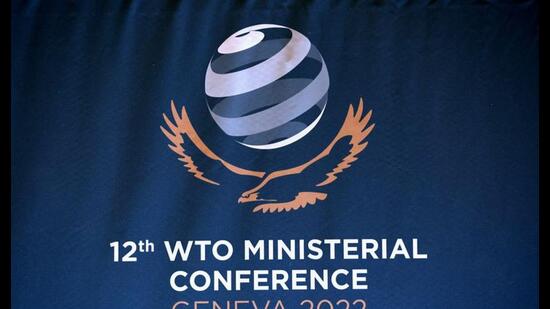What India must do to safeguard and boost its digital ‘golden goose’
A recent Organisation for Economic Co-operation and Development report found that electronic transmissions reduce trade costs by as much as 20-30%. These costs tend to be highest for developing countries
India’s digital economy has been one of the shining stars of its economy for a couple of decades. The pandemic devastated the economy — but also fast-tracked the adoption of digital technologies. Official figures show that both software and IT-enabled services continued to grow at 10% while the pandemic was at its worst. This proved to be critical to users and the business continuity, enabling much of the recovery witnessed in 2021. As we face an extended period of global uncertainty and slowdown, we need to make sure the digital economy continues to build new opportunities for both India and the rest of the world.

India should soon become a digital trade dynamo. Estimates of its digital trade potential run as high as $500 billion by 2030. But its actions at the ongoing World Trade Organization (WTO) ministerial conference in Geneva could impact its ability to reach this potential. Up for discussion at the meet is an important WTO understanding that has been in place since 1998: No tariffs on cross-border electronic transmissions. This decades-old pledge has allowed medium and small businesses to flourish internationally, students to learn online, particularly during the pandemic. India’s economy has benefited hugely. The lapse of the moratorium would have a severe impact on all businesses that use digital technologies and operate on a cross-border basis.
At every WTO meeting, trade ministers have agreed to renew the moratorium. This time, India has stated that it will oppose renewing the moratorium, citing potential tariff revenue loss. But this argument needs re-examination.
A European study has suggested that in a scenario where the lapse of the moratorium gives way to reciprocal imposition of tariffs, India would lose 49 times more in Gross Domestic Product than it would generate in duty revenues. Tariff-free cross-border electronic transmissions are important to all businesses, because virtually all businesses use digital tools and technologies.
A recent Organisation for Economic Co-operation and Development report found that electronic transmissions reduce trade costs by as much as 20-30%. These costs tend to be highest for developing countries. Failure to renew the moratorium will result in added transaction costs and add unnecessary friction to production flows and supply chains across multiple industries in India and beyond.
As India adjusts to the post-Covid-19 changes in the global economy, it will need technical know-how and scientific and commercial information more than ever. India’s manufacturing initiatives, such as Make in India, depend on the easy and inexpensive availability of digital services. Similarly, the drive to make India a manufacturing hub as other countries diversify their supply chains is impossible without cheap and expanding electronic linkages. Imposing tariffs on electronic services would have a disproportionate impact on small and medium-sized enterprises in India. Their ability to access and leverage digital tools has allowed them to stay in business, amid physical restrictions and lockdowns. Ironically, it would also present a threat to India’s digital services export industry, which, reached $146 billion in 2020-21. India should protect its digital “golden goose” and the rest of its outward-focused economy.
Teresita C Schaffer is a retired US diplomat, who devoted most of her career to South Asia and to economic diplomacy. She served in New Delhi, and was also US Ambassador to Sri Lanka. Her most recent book is India at the High Table. She is now a senior adviser to McLarty Associates, a Washington-based international strategic advisory firm which works with American tech firms that have business interests in India
The views expressed are personal.
Continue reading with HT Premium Subscription




